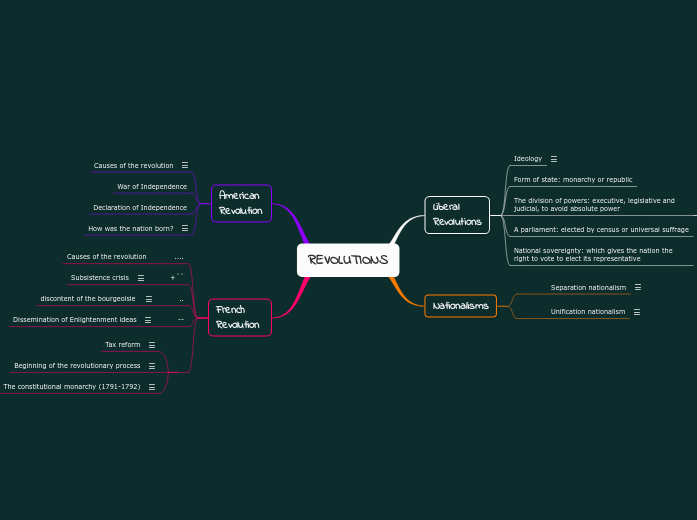REVOLUTIONS
Liberal
Revolutions
Ideology
Form of state: monarchy or republic
The division of powers: executive, legislative and judicial, to avoid absolute power
A parliament: elected by census or universal suffrage
National sovereignty: which gives the nation the right to vote to elect its representative
Nationalisms
Separation nationalism
Unification nationalism
American
Revolution
Causes of the revolution
War of Independence
Declaration of Independence
How was the nation born?
French
Revolution
....
Causes of the revolution
+´´
Subsistence crisis
..
discontent of the bourgeoisie
--
Dissemination of Enlightenment ideas
Tax reform
Beginning of the revolutionary process
The constitutional monarchy (1791-1792)
